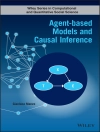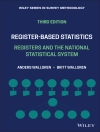Creative Evolution Henri Bergson – Creative Evolution provides an alternate explanation for Darwin’s mechanism of evolution, suggesting that evolution is motivated by an élan vital, a ’vital impetus’ that can also be understood as humanity’s natural creative impulse. The book was very popular in the early decades of the twentieth century, before the Neodarwinian synthesis was developed.[citation needed] The book also develops concepts of time (offered in Bergson’s earlier work) which significantly influenced modernist writers and thinkers such as Marcel Proust. For example, Bergson’s term ’duration’ refers to a more individual, subjective experience of time, as opposed to mathematical, objectively measurable ’clock time.’ In Creative Evolution, Bergson suggests that the experience of time as ’duration’ can best be understood through creative intuition, not through intellect.
Om författaren
Henri Bergson was one of the most famous and influential French philosophers of the late 19th century-early 20th century. Although his international fame reached cult-like heights during his lifetime, his influence decreased notably after the second World War. While such French thinkers as Merleau-Ponty, Sartre, and Lévinas explicitly acknowledged his influence on their thought, it is generally agreed that it was Gilles Deleuze’s 1966 Bergsonism that marked the reawakening of interest in Bergson’s work. Deleuze realized that Bergson’s most enduring contribution to philosophical thinking is his concept of multiplicity. Bergson’s concept of multiplicity attempts to unify in a consistent way two contradictory features: heterogeneity and continuity. Many philosophers today thinks that this concept of multiplicity, despite its difficulty, is revolutionary. It is revolutionary because it opens the way to a reconception of community.












